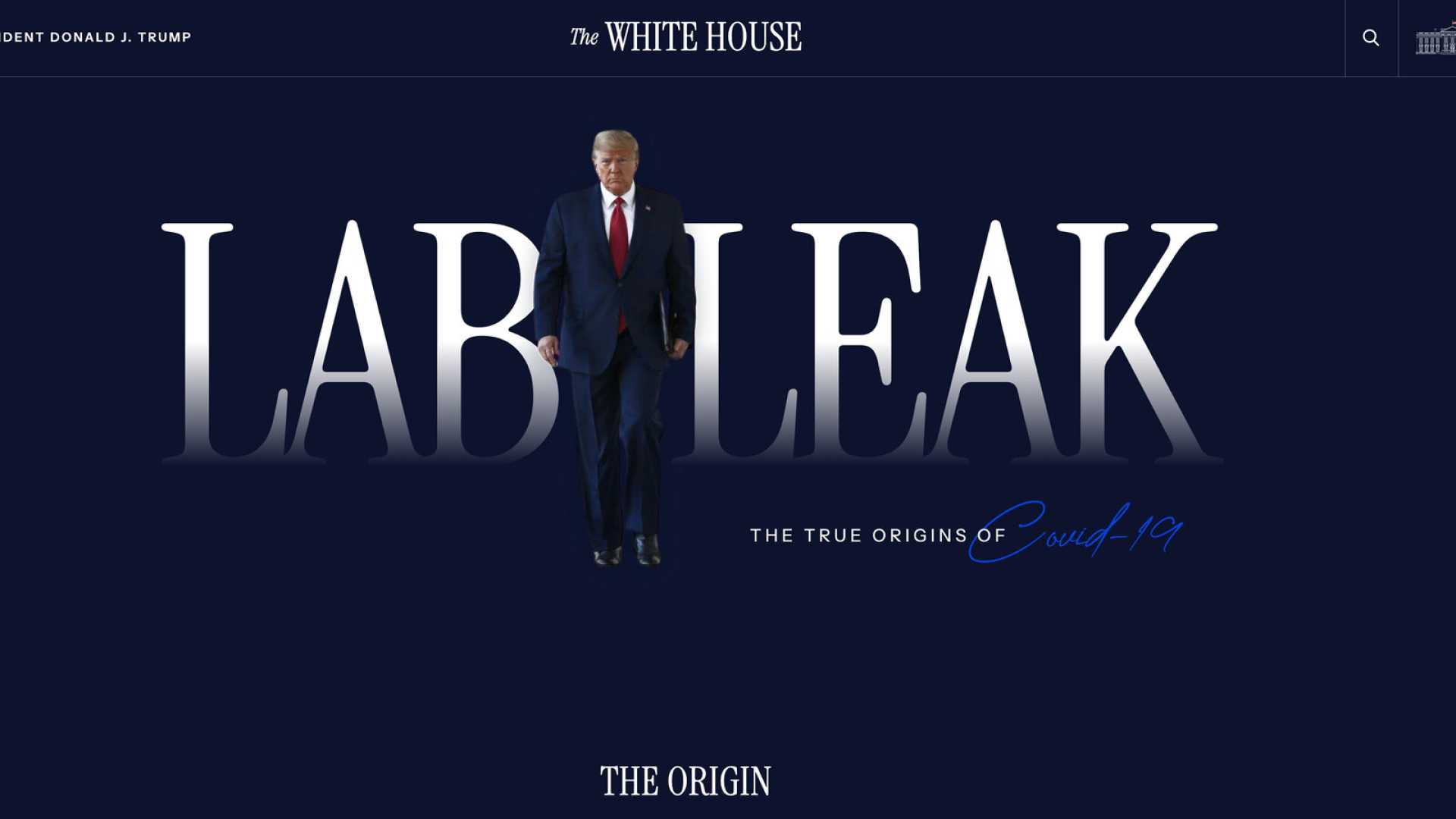Health
White House Revamps COVID-19 Site, Promotes Controversial Lab Leak Theory

WASHINGTON, D.C. — On April 19, 2025, the White House introduced a significant shift in its messaging regarding the origins of COVID-19 by launching a revamped version of the covid.gov website. The site now prominently features the controversial theory that the virus originated from a laboratory leak in Wuhan, China.
This change moves away from the previous focus on public health resources, redirecting the emphasis toward accusations against high-profile figures including former President Joe Biden, Dr. Anthony Fauci, and the World Health Organization (WHO). A striking banner on the new site displays the words “Lab Leak” alongside an image of former President Donald Trump.
The revised site alleges that the Wuhan laboratory operated under “inadequate biosafety levels,” claiming this environment may have contributed to the outbreak of the virus. It further criticizes Dr. Fauci for promoting what the website describes as a “preferred narrative” suggesting that the virus developed naturally, a notion many in the scientific community have viewed with skepticism.
Previously, covid.gov served as an essential resource, offering vital information on vaccinations, testing sites, and treatment options for the virus. However, the redesign strips away much of this critical public health information, now focusing instead on a narrative that aligns more closely with conspiracy theories surrounding the virus’s origins.
According to a recent Associated Press report, the new site also links to a House Oversight Committee report supporting the lab leak theory, solidifying this viewpoint within official government communications. This development follows a U.S. intelligence assessment from 2023, which found insufficient evidence to conclusively favor either the lab leak or natural origin theories, leaving the debate unresolved.
The White House’s pivot towards the lab leak theory has attracted criticism from various quarters, particularly as it dovetails with wider political changes in the United States. The site’s overhaul is perceived as an attempt to resonate with Trump’s supporter base, which has long championed the lab leak narrative. An assertion made on the site claims, “By nearly all measures of science, if there were evidence of a natural origin, it would have already surfaced. But it hasn’t,” contrasting sharply with the consensus among many scientists.
As the U.S. grapples with the pandemic’s effects, the updated covid.gov site emphasizes a dramatic shift in communication strategies. The Centers for Disease Control and Prevention (CDC) recently reported an average of 325 COVID-19 deaths per week in April, underlining the virus’s persistent threat. Additionally, fewer than 25% of U.S. adults had received the latest COVID-19 vaccine as of April 5, 2025, suggesting a public health hurdle that the new website fails to adequately address.
Furthermore, the website has faced backlash for removing resources related to transgender health and other public health guidelines that previously targeted marginalized communities. Critics warn that this omission indicates a shift in administration priorities amidst current health challenges.
This website transformation unfolds amid escalating tensions between the U.S. and China, particularly after a CIA assessment in January suggested the virus’s lab origin is more plausible. Beijing has vehemently refuted these claims, accusing the U.S. of politicizing COVID-19’s origins while advocating for a collaborative international investigation.
Despite the polarizing claims made on the new website, there has been no immediate response from the Biden administration, Dr. Fauci, or the WHO, likely reflecting the contentious nature of the ongoing discourse surrounding COVID-19’s origins.
The revamped covid.gov site signals a significant shift in government communication about the pandemic, moving away from public health and safety towards narratives catering to political agendas. As the nation continues to address the repercussions of COVID-19, this shift carries implications for public trust in health information and future responses to health crises.
As the pandemic continues to impact millions both domestically and globally, the need for accurate, science-based information remains critical. The recent changes to the covid.gov website serve as a reminder of the ongoing challenges public health officials face in combatting misinformation and ensuring that the public has access to essential resources for protection.












